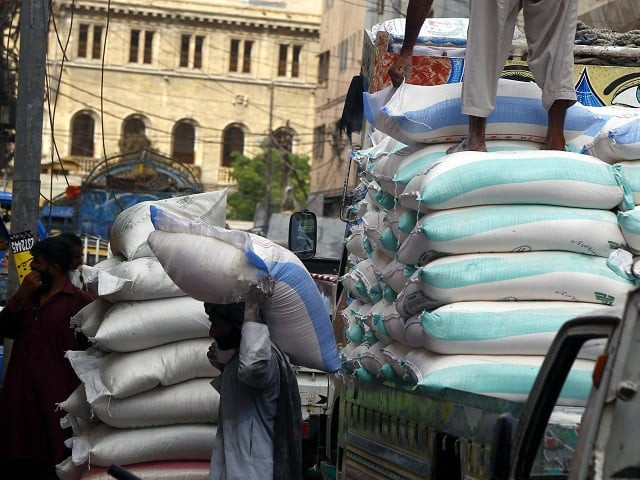Traders threaten to halt imports over WHT
Jodia Bazaar protests against rising taxes, energy costs; warn of supply disruptions

Traders in Jodia Bazaar, the largest wholesale market for commodities in Karachi, have warned they will cease imports if the new withholding tax (WHT) is implemented.
During a news conference on Saturday, Rauf Ibrahim, Chairman of the Wholesale Grocers Association, announced that the closure of Jodia Bazaar's shops was a protest against recent increases in WHT and electricity tariffs. He criticised the 2.5% increase in WHT on pulses and commodities, questioning why traders who already pay an annual fixed tax should also be required to act as withholding agents.
Ibrahim, joined by Ahmed Majeed, Chairman of the Pakistan Pulses Importers Association, argued that pulses and rice are staple items, and the additional tax burden is unjustified. "We are making it clear to the government that if these taxes are imposed, we will stop importing pulses. The government should manage the import of pulses itself," he warned.
He further lamented the rising business costs due to increased electricity tariffs, which he claimed only benefit a small elite while burdening the common man. Ibrahim underscored that Pakistan imports 20 million tonnes of pulses annually. Although revenue is being collected, new surcharges of 45% and 10% on income have added to the traders' financial woes. He urged the FBR to reconsider its approach and called on the government to intervene.
Majeed echoed these concerns, noting that Pakistan is one of the world's top three commodity importers. He criticised the government's decision to impose the WHT, arguing that it has complicated operations rather than providing relief. He warned of potential supply chain disruptions and stated that if the tax is not withdrawn, traders will stop placing orders for pulses.
Currently, only a one-month supply of pulses remains in the wholesale market, and with 70% of local traders having already stopped imports, the situation is becoming increasingly precarious.



















COMMENTS
Comments are moderated and generally will be posted if they are on-topic and not abusive.
For more information, please see our Comments FAQ